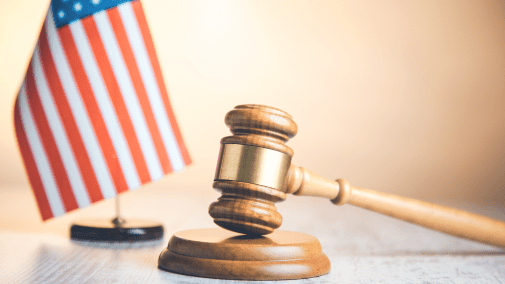When you find yourself facing an unfavorable court decision, the path to justice may lie in filing an appeal. In Florida, where legal procedures can be intricate and nuanced, selecting the right appeal lawyer is crucial to navigating this complex process successfully. This guide outlines essential factors to consider when choosing the best appeal lawyers in Florida, ensuring you make an informed decision for your legal needs.
Understanding the Role of Appeal Lawyers
Before diving into the selection process, it’s important to understand the specific role of appeal lawyers in florida. Unlike trial attorneys who focus on presenting evidence and witness testimony, appeal lawyers specialize in reviewing trial court decisions and identifying legal errors. They craft compelling legal arguments, file necessary documents, and may represent you during oral arguments before an appellate court.
Key Factors to Consider When Choosing Appeal Lawyers in Florida
1. Specialization in Appellate Law
Look for Lawyers with Appellate Experience
The field of appellate law is highly specialized. When choosing an appeal lawyer, ensure they have substantial experience specifically in appellate matters. Ask about their:
- Educational Background: A lawyer with a strong academic foundation in appellate law is more likely to be knowledgeable about the nuances of the appeals process.
- Years of Practice: Experience is invaluable in understanding procedural rules and courtroom dynamics.
2. Proven Track Record of Success
Evaluate Their Success Rates
A successful track record is a key indicator of an appeal lawyer’s effectiveness. When assessing potential candidates, consider:
- Case Outcomes: Inquire about their history of winning appeals and the types of cases they have handled.
- Client Testimonials: Look for reviews and feedback from previous clients to gauge their satisfaction and the lawyer’s ability to meet client expectations.
3. Strong Analytical and Writing Skills
Assess Their Analytical Abilities
Effective appeal lawyers must possess exceptional analytical skills. Consider the following:
- Case Review Process: During initial consultations, ask how they plan to analyze your case. A thorough review indicates strong analytical abilities.
- Writing Samples: If possible, request samples of their appellate briefs. Strong writing skills are essential for crafting persuasive legal arguments.
4. Communication Style
Choose a Lawyer Who Communicates Effectively
Effective communication is vital throughout the appeals process. When meeting with potential lawyers, pay attention to:
- Clarity and Transparency: Ensure the lawyer clearly explains complex legal concepts and keeps you informed about case developments.
- Responsiveness: A good lawyer should be prompt in responding to your inquiries and available for discussions.
5. Familiarity with the Appellate Courts
Look for Local Knowledge
An attorney’s familiarity with the specific appellate court where your case will be heard can be advantageous. Consider:
- Understanding of Local Rules: Each appellate court may have unique rules and procedures; familiarity can help avoid pitfalls.
- Relationships with Judges: Established relationships with judges can potentially facilitate smoother interactions during the appeals process.
6. Fee Structure and Affordability
Discuss Financial Considerations
Understanding the fee structure is crucial for making an informed decision. Ask potential lawyers about:
- Billing Methods: Determine whether they charge a flat fee, hourly rate, or retainer fee.
- Cost Transparency: Ensure there are no hidden fees and that you receive a clear breakdown of costs.
7. Personal Compatibility
Assess Your Comfort Level
Your appeal lawyer will be your advocate during a challenging time, so personal compatibility is essential. Consider:
- Trust and Rapport: Choose a lawyer you feel comfortable discussing sensitive matters with.
- Shared Values: A lawyer whose values align with yours may be more invested in achieving the best possible outcome for your case.
Appeal lawyers, also known as appellate lawyers, specialize in representing clients during the appeals process following a trial court’s decision. Their expertise is crucial for anyone who wishes to challenge a verdict or ruling. Here’s a detailed look at what appeal lawyers do, their importance, and what you can expect when working with one.
What Appeal Lawyers Do
1. Review Trial Records
Appeal lawyers meticulously review the entire trial record, which includes:
- Transcripts: The verbatim record of what occurred during the trial.
- Evidence and Exhibits: Documents, photographs, and other materials presented in court.
- Court Filings: All motions, briefs, and orders related to the case.
This thorough review helps them identify potential legal errors that could form the basis of an appeal.
2. Identify Grounds for Appeal
Based on their analysis, appeal lawyers determine whether there are valid grounds for filing an appeal. Common grounds include:
- Legal Errors: Mistakes made by the judge in applying the law.
- Procedural Errors: Missteps in the way the trial was conducted that may have affected the outcome.
- Insufficient Evidence: Arguments that the evidence presented at trial was not enough to support the verdict.
3. Draft Appellate Briefs
One of the core responsibilities of an appeal lawyer is drafting appellate briefs. These documents outline the legal arguments for why the appellate court should overturn or modify the lower court’s decision. Key elements include:
- Statement of Facts: A concise summary of the case and its background.
- Legal Arguments: Well-reasoned points supported by statutes, case law, and legal precedents.
- Conclusion: A clear statement of what the lawyer is requesting from the appellate court.
Finalization
Choosing the right appeal lawyers in Florida is a critical step in navigating the appeals process effectively. By considering factors such as specialization, track record, analytical skills, communication style, local knowledge, fee structure, and personal compatibility, you can make a well-informed decision that enhances your chances of a successful appeal.
Taking the time to research and meet with potential lawyers will empower you to find the right advocate to represent your interests in court. With the right appeal lawyer by your side, you can confidently pursue justice and work towards a favorable outcome in your case.
Exploring the Wonders of South Africa: A Traveler’s Paradise


